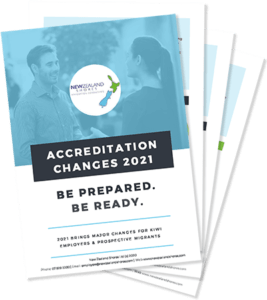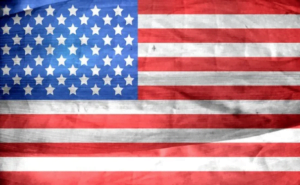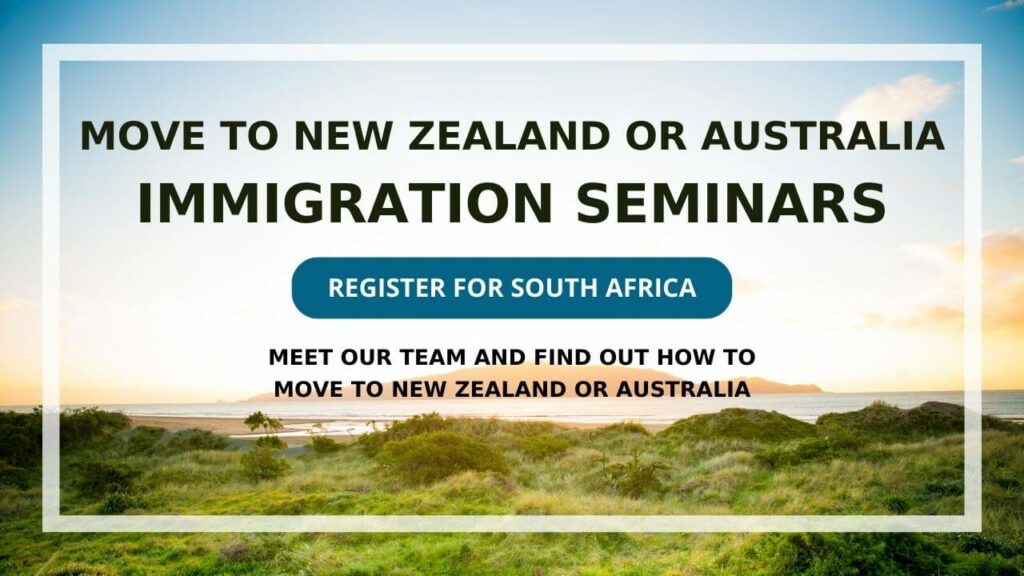Let’s keep you all up to date on what has been happening and what the current status is at the New Zealand border.
- General update
- Managed Isolation booking up pre-Christmas
- Vaccine news encouraging
- The new employer Accreditation system
- New Zealand needs critical health workers
- President-Elect Joe Biden a positive for New Zealand
- Your questions answered
General Update
New Zealand remains at Level 1, with only 52 active cases of Covid-19, all in managed isolation. There is no major community outbreak evident in the country.
The Managed Isolation system continues to book up for the pre-Christmas period. Anyone travelling will need to book their place from the 20th of December.
Vaccination Progress for Covid-19
Recent news indicates significant progress in the clinical trials of a vaccine for Covid-19
Research, Science and Innovation Minister Megan Woods said the vaccine delivery to New Zealand could be available in the first quarter of 2021. This is subject to the vaccine successfully completing all regulatory and clinical trials.
This is an encouraging step in the right direction as we believe we’ll begin to see more restrictions being lifted at the border once a vaccine is available.
 New Employer Accreditation Process expected in 2021
New Employer Accreditation Process expected in 2021
Immigration New Zealand has plans to implement a new employer accreditation system in 2021. What will this look like?
Essentially this means that all employers who want to hire migrants must be accredited to support a new temporary work visa application. Policy on the new accreditation has yet to be released. INZ intends to release instructions before the new year.
If you are a NZ employer, you can find out more by downloading our brochure which details the upcoming changes.
New Zealand still needs critical health workers
 As many are aware, there is a shortage of skilled and registered critical health workers in New Zealand. Those who fit the criteria may be granted border exception.
As many are aware, there is a shortage of skilled and registered critical health workers in New Zealand. Those who fit the criteria may be granted border exception.
Critical Health Workers include the following people:
• Experienced workers who install , operate or maintain medical equipment
• Paramedics and ambulance workers
• Technical support staff working in specific areas
• workers delivering mental health and addictions services, aged care, respite, home care and support, child health, palliative and hospice care, forensic health, and disability support.
• An NZ registered nurse or
• Nurses who are internationally qualified who have also been invited to come to NZ by the Nursing Council and are enrolled in a Competence Assessment Program (before 31 December 2020)
If you believe you fit the above criteria, and have been offered a job
USA Election Results and why this matters in NZ
 During the American election New Zealand’s immigration website saw 40,000 hits from Americans wanting to see their chances of getting into the country! Our website recorded a 400% increase in visits over election day/night.
During the American election New Zealand’s immigration website saw 40,000 hits from Americans wanting to see their chances of getting into the country! Our website recorded a 400% increase in visits over election day/night.
Results of the recent U.S election could have a positive impact on New Zealand because the reinstating of foreign policy and trade agreements may benefit New Zealand’s export potential. President Elect Joe Biden also plans to have a stricter response to Covid-19 in a country where there have been an estimated 10.2 million cases.
The better other countries contain the virus the more likely we are to see borders opening in 2021-2022.
Your Questions Answered
The consultants at New Zealand Shores understand your frustrations and fears during this unprecedented time. We recognise that many of you fall in ‘grey zones’. Below are some frequently asked questions, answered!
I was offered a job before Covid. The employer has kept the job open until early 2021. Can I come to New Zealand?
Restrictions at the border remain the same in that only critical workers are being given the opportunity to request border exception. Offshore visas remain suspended until February 2021. At this time the government will review and decide whether border access will be granted to skilled migrants with job offers. If the job offer is still valid, you may apply for a visa, subject to meeting policy requirements at that point in time, or at the time of lodge if your application is pending.
My employer said I can start working remotely in my home country until the border opens. Do I need a visa?
You do not need a work visa for New Zealand to begin working if you are offshore. You will need to discuss your individual tax obligations with your employer.
Once borders open, if you plan to work onshore, you will need to apply for a work visa.
We are optimistic that INZ will implement border exceptions for those in this situation in 2021.
I am eligible to submit an Expression of Interest (EOI) while offshore. I have 160+ points. Should I still submit an application even though the pool is suspended?
The EOI selection process has been deferred for the Skilled Migrant Category and will be reviewed in 2021. EOIs will not be selected before April 2021 but the pool remains open for submissions.
How can I be reunited with my New Zealand partner who is in NZ? I don’t have a visa
If you hold a passport for a country from the visa waiver list (linked below), you are in a genuine and stable relationship with an NZ citizen or resident, and you have not been granted a visa based on your partnership, you may request travel to New Zealand.
You will need to provide evidence of your relationship. Your advisor can help you with the documents required
Visa waiver countries can be found here
My partner is in New Zealand on a work visa. We have been separated for months. Can I come to New Zealand yet?
Unfortunately at this time only those who already held a visa and who lived in New Zealand may request to travel. We anticipate changes to this restriction in the New Year.
What does ‘lived in New Zealand’ mean?
To qualify for a border exemption, temporary visa holders stuck offshore must have lived in New Zealand for more than 2 years before leaving, or between 1 and 2 years.
If they lived in New Zealand for between 1 and 2 years they must also have:
- had 1 or more dependent children with them in New Zealand for at least 6 months of that 12-month period;
- have parents or adult siblings who are currently in, and who are ordinarily resident in, New Zealand; or
- submitted their application for their current resident visa by 10 August 2020.
To qualify as having lived in New Zealand, the applicant must have been in New Zealand for at least 273 days (9 months) of each 12-month period before the date of their departure.
I purchased my flights to New Zealand before the allocation system for Managed Isolation was implemented. What do I do?
You will still need to purchase a voucher for Managed Isolation unless you are exempt from using the system.
Who can enter the country without first requesting a border exception?
- New Zealand citizens
- Permanent Residents of New Zealand
- Resident visa holders with valid travel conditions, unless you got a resident visa outside New Zealand and you have never used it to travel here
- Australian citizens or permanent residents ordinarily resident in New Zealand.
- If you are a partner of a New Zealand citizen or resident, and you hold a current visa based on your relationship
- If you are the dependent child of a New Zealand citizen or resident and you hold a visa based on this relationship
- Diplomats who holds a post in New Zealand
We at New Zealand Shores all hope that you have a great weekend and please get in contact with us if you have any questions.
Take care, Chelsea


